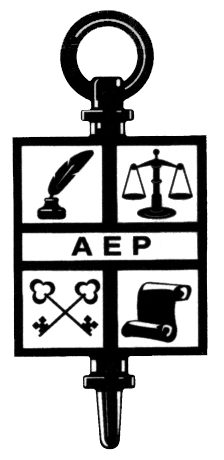Many people who inherit wealth or small businesses are at significant risk for essentially squandering the wealth. Here are a few pointers for setting up your beneficiaries for success:



Provide for your spouse, then your kids, with a QTIP trust
Estate Planning, Estate Tax Savings, Family, Marianne Ludlow, Wills and Trusts, August 17, 2018If you want to preserve as much wealth as possible for your children, but you leave property to your spouse outright, there’s no guarantee your objective will be met. This may be a concern if your spouse has poor money management skills or if you two don’t see eye to eye on how assets should be distributed to your children. It could also be a concern if you have children from a previous relationship; you may want to provide for a current spouse while he or she is alive, but have your assets go to your children upon your spouse’s.

How to maintain family harmony with Trusts
Asset Protection, Blended Families, Estate Planning, Marianne Ludlow, Wills and Trusts, August 8, 2018A traditional trust can sometimes create a conflict between the lifetime (i.e. beneficiaries that have an interest in trust assets just for their lifetime) and remainder beneficiaries (i.e. beneficiaries that have an interest in the trust after the lifetime beneficiary). For example, a person may establish a trust that gives their surviving spouse a lifetime income interest in the trust assets but, upon the spouse’s death, pays the remainder of the trust’s assets to their children. In that situation, investment strategies that provide growth that benefits the children (the remainder beneficiaries) can leave the spouse (the lifetime beneficiary) with little.

Who Should Own Your Life Insurance Policy
Estate Planning, Insurance Planning, Wills and Trusts, March 20, 2018If you own life insurance policies at your death, the proceeds will be included in your taxable estate. Ownership is usually determined by several factors, including who has the right to name the beneficiaries of the proceeds. The way around this problem is to not own the policies when you die. However, don’t automatically rule out your ownership either. And it’s important to keep in mind the current uncertain future of the estate tax. If the estate tax is repealed (or if someone doesn’t have a large enough estate that estate taxes are a concern), then the inclusion of your.
How Estate Planning Can Benefit You While You Are Alive
Estate Planning, Uncategorized, March 17, 2018A common misconception is that estate planning equates to death planning. But planning for what happens after you die is only one piece of an estate plan. Just as important is making a plan for what happens if you become incapacitated during your lifetime. If it’s been a few years since you did your planning or if you’ve had any significant changes in your family or financial circumstances, it’s time to come in and make sure your incapacity plan is up to date. Avoiding Time-Consuming and Costly Guardianship or Conservatorship Proceedings Without a comprehensive incapacity plan in place, a judge.

12 Vital Questions to Ponder this Holiday Season
Estate Planning, December 28, 2017Holidays are about loved ones and so is legal planning. Here are some important questions to ponder this holiday season, as you gather with family and friends. If any of your children received their inheritance today, would you be concerned about how they would handle it? Do you want to protect the money you pass down from your loved ones’ creditors, divorcing spouses, or predators? Do you have enough assets or life insurance to care for your children in your absence? Have you recently created a list of your assets, so that if something happens to you, family knows where.

Strengthen Your Blended Family Through Legal Planning
Estate Planning, Family, Tips, Wills and Trusts, November 27, 2017Most people today know and love someone from a blended family, or come from a blended family themselves. The latest statistics show 46 percent of weddings taking place in the United States today are the creation of a stepfamily. Blended families come in countless shapes and sizes, and can be just as diverse in their dynamics and values. If you are part of a blended family, you are aware of the unique benefits and challenges that can come with the territory. Because they are so unique, the process of protecting your family can be equally challenging. It is therefore important.

5 Reasons to Embrace Estate Planning
Business Planning, Estate Planning, Tips, Wills and Trusts, November 4, 2017Some of us are familiar enough with the phrase “estate plan

5 Things to Consider When Selecting A Trustee
Estate Planning, Family, Wills and Trusts, June 28, 2017Choosing someone to administer your estate may be a daunting task. This person is known as a fiduciary or someone who is legally obligated to act in your interest. After you thoughtfully set up your trust and the stipulations for taking care of your loved ones financially, you will need someone to act in your behalf to see it through. He or she will be responsible for continued management of the trust and/or distribution to the beneficiaries. The trustee will consult with the beneficiaries about periodic checks issued from the trust, expenses to be paid and permissible withdrawals against the principal. Here are some considerations for selecting the right person for the job.





